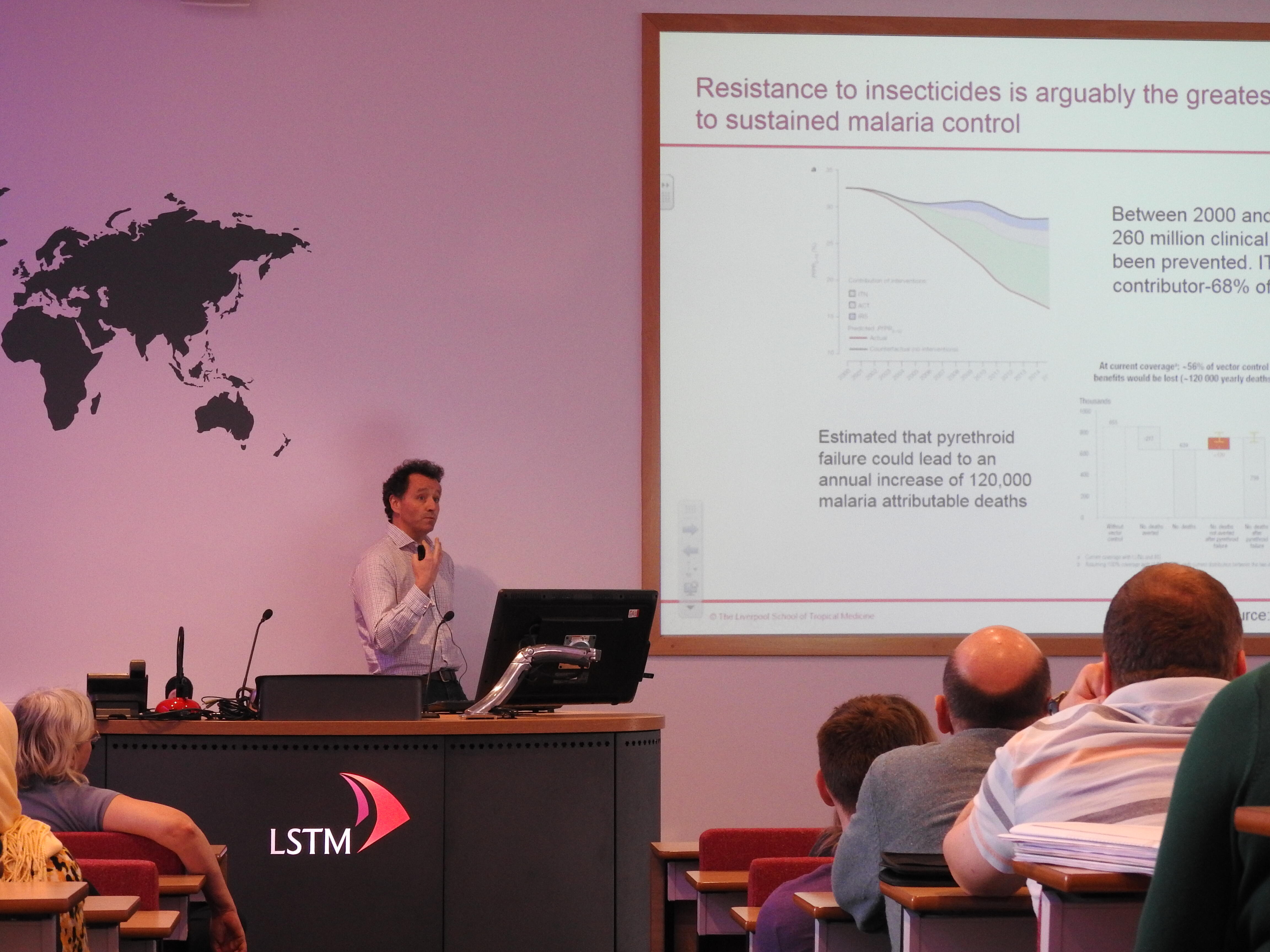
LSTM’s Seminar Series restarted for the second semester with a talk from LSTM’s Martin Donnelly, Professor of Evolutionary Genetics. His seminar What have the genomes ever done for us? How population genomics is revolutionizing our understanding of insecticide resistance, was introduced by LSTM’s Director, Professor Janet Hemingway.
Professor Donnelly began by explaining that the three key organisms in the malaria cycle; human, Plasmodium and Anopheles genomes were sequenced about 15 years ago, but arguably their impact on public health and practice had been limited. For example, the major reductions in malaria incidence over the last 15 years have been driven by a relatively simple technology, insecticide treated bednets. However, mosquitoes are rapidly developing resistance to the class of insecticide used on the nets and it is estimated that this could lead to an additional 120,000 malaria attributable deaths per year. It is therefore of great importance that insecticide resistance associated variants are identified as a prelude to developing insecticide resistance management strategies. Professor Donnelly explained that the Anopheles genome had facilitated the search for resistance markers and LSTM’s Department of Vector Biology have shown that a small number of genes are consistently overexpressed in resistant mosquitoes, particularly the cytochrome P450 genes.
The speed with which we are able to identify resistance variants is set to change, driven by the Anopheles gambiae 1000 genomes project (Ag1000G). The Ag1000G project involves numerous project partners notably the Wellcome Trust Sanger Institute and the University Oxford and provides a fundamental data resource for malaria vector research. The project is already providing the tools to carry out research into the issue of resistance, looking at the genetic variations involved in different species and across different areas and he gave examples of some of the work carried out to look at cosmopolitan, localised and additive resistance variants across different parts of Africa.
Professor Donnelly concluded by looking at what genomics has taught us so far and suggested that the next challenge is to embed genomic studies into ongoing public health interventions.
A recording of the seminar can be found here.